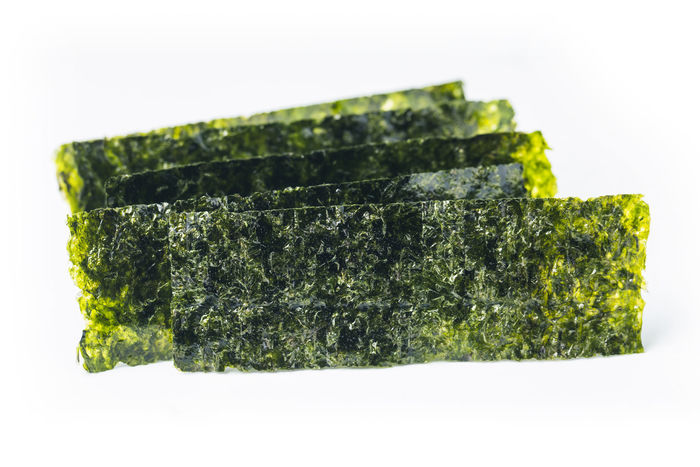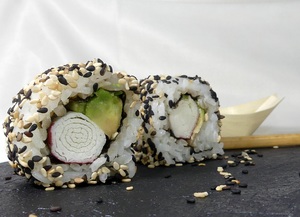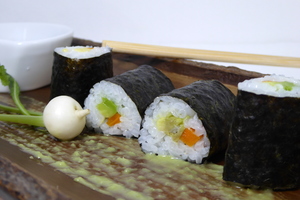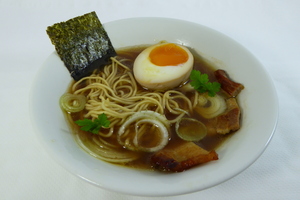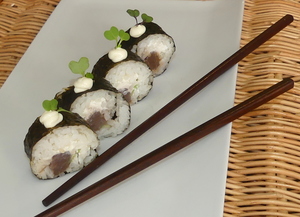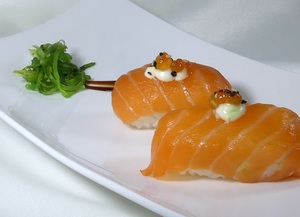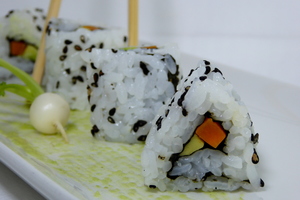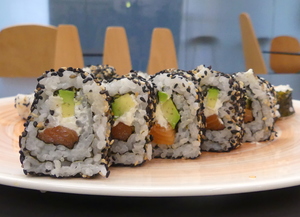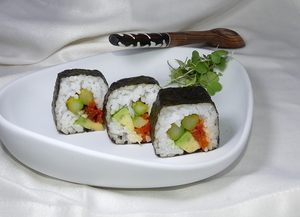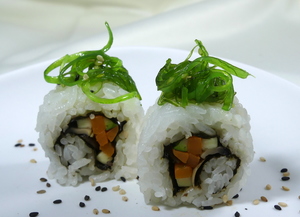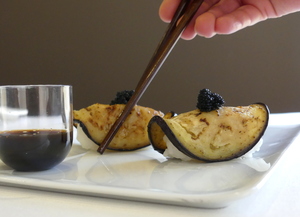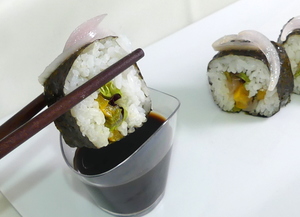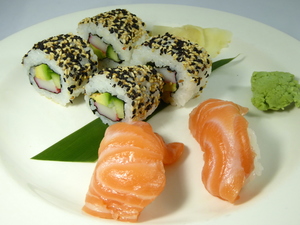Nori seaweed
Seasonal period:
All year
Allergens
Nori is a japanise term used to name edible varieties of seaweed from the diverse species of red algae. Seaweed are milled, seasoned, and dehydrated to create flexible leaves commonly named Nori.
It is generally used to make sushi rolls (maki) but it can be cut in fine strips and sprinkled in a soup or a stew.
Nutritional information (100.0 g)
Energy
306.0
kcal
Carbohydrates
7.1
g
Proteins
33.2
g
Lipids
1.1
g
Sugars
0.0
g
Salt (Sodium)
790.0
mg
Folic acid
0.0
ug
Vitamin C
14.0
g
Vitamin A
715.0
ug
Zinc
3.3
mg
Iron
10.5
mg
Calcium
359.2
mg
Cholesterol
0.0
mg
Polyunsaturated fatty acids
0.0
g
Monounsaturated fatty acids
0.0
g
Saturates
0.49
g
Fiber
22.9
g
The data is merely a guide and should not be used for medical purposes. Those responsible for the web disclaims any responsibility.
Recipes
-
Type of dish
- Beers
- Cocktails
- Breakfasts and brunch
- Burguers
- Juices, milkshakes and beverages
- Shellfish
- Bread and pastries
- Pizzas, patty
- Dessert
- Pasta
- Sándwich
- Pastries
- Finger foods
- Ice creams and sorbets
- Legumes
- Salads
- Eggs
- Patty
- liqueur
- Harvard plate
- Main course
- Meats
- Fish
- Birds
- Vegetables
- Soups and creams
- Rices
- Coffee, chocolate and infusion
- Cheeses
- Appetizers and canapes
- Temperature
- Cuisine type
- Additional culinary preparation
- Conservation technique
- Seasonal recipes
-
- Aromatic herbs
- Beverages
- Big game hunt
- Bread and pastries
- Canned goods and pickles
- Cereals
- Condiments, spices and additives
- Cooked, salted, preserved and cold meats
- Dried fruits and nuts
- Dry pulses
- Edible oils and vinegars
- Eggs and derivatives
- Feathered game hunt
- Fish cuts
- Fishes
- Insects
- Kitchen and bakery tecniques
- Kitchen and bakery utensils
- Meat cuts
- Meats
- Milk, cream and derivatives
- Mushrooms
- Offal
- Pasta, rice, flour and derivatives
- Poultry
- Seafood
- Service techniques
- Service utensils
- Vegetables cuts
- Vegetables, fruits, tubers and seaweed

